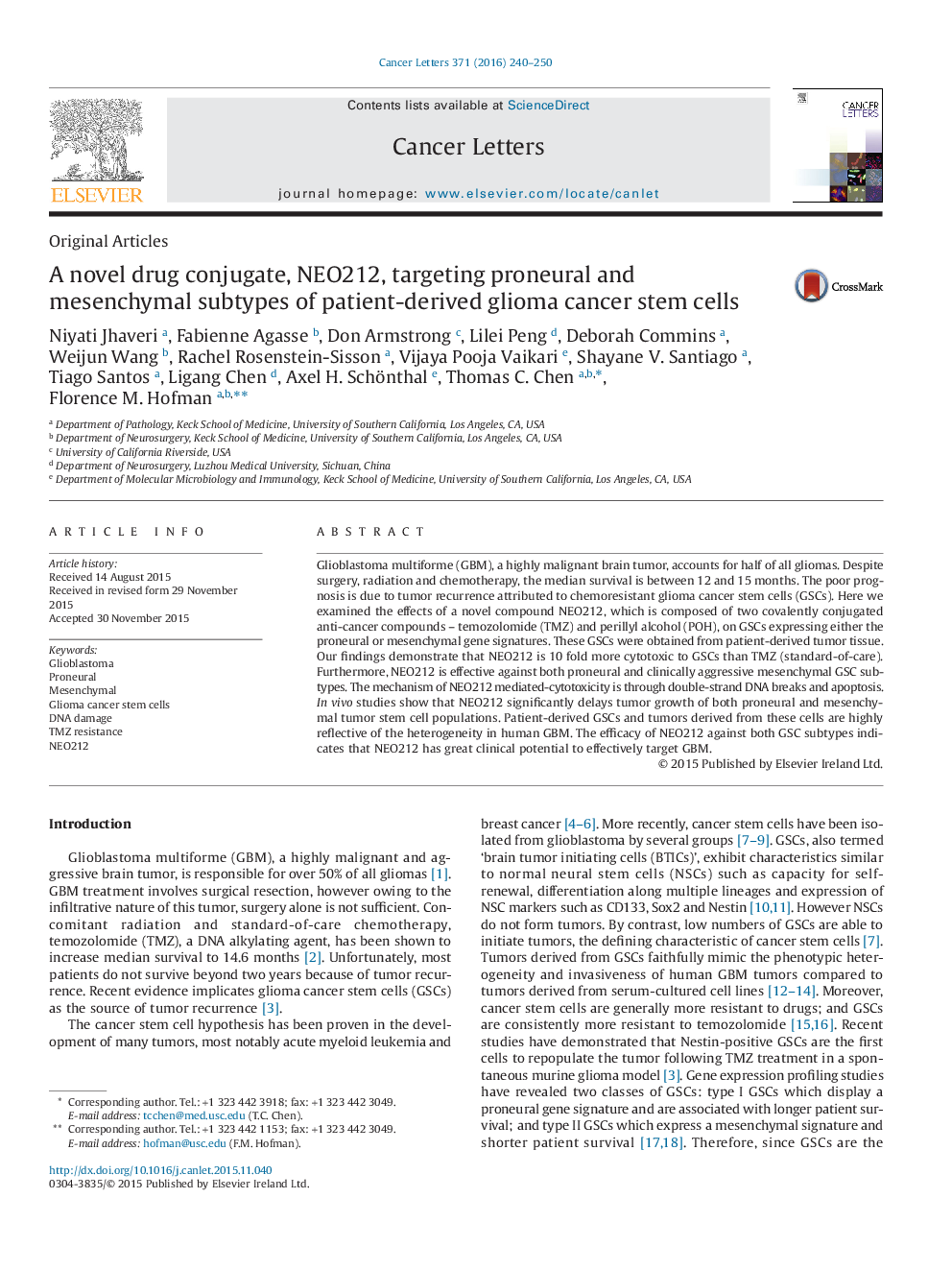| Article ID | Journal | Published Year | Pages | File Type |
|---|---|---|---|---|
| 10899427 | Cancer Letters | 2016 | 11 Pages |
Abstract
Glioblastoma multiforme (GBM), a highly malignant brain tumor, accounts for half of all gliomas. Despite surgery, radiation and chemotherapy, the median survival is between 12 and 15 months. The poor prognosis is due to tumor recurrence attributed to chemoresistant glioma cancer stem cells (GSCs). Here we examined the effects of a novel compound NEO212, which is composed of two covalently conjugated anti-cancer compounds - temozolomide (TMZ) and perillyl alcohol (POH), on GSCs expressing either the proneural or mesenchymal gene signatures. These GSCs were obtained from patient-derived tumor tissue. Our findings demonstrate that NEO212 is 10 fold more cytotoxic to GSCs than TMZ (standard-of-care). Furthermore, NEO212 is effective against both proneural and clinically aggressive mesenchymal GSC subtypes. The mechanism of NEO212 mediated-cytotoxicity is through double-strand DNA breaks and apoptosis. In vivo studies show that NEO212 significantly delays tumor growth of both proneural and mesenchymal tumor stem cell populations. Patient-derived GSCs and tumors derived from these cells are highly reflective of the heterogeneity in human GBM. The efficacy of NEO212 against both GSC subtypes indicates that NEO212 has great clinical potential to effectively target GBM.
Related Topics
Life Sciences
Biochemistry, Genetics and Molecular Biology
Cancer Research
Authors
Niyati Jhaveri, Fabienne Agasse, Don Armstrong, Lilei Peng, Deborah Commins, Weijun Wang, Rachel Rosenstein-Sisson, Vijaya Pooja Vaikari, Shayane V. Santiago, Tiago Santos, Ligang Chen, Axel H. Schönthal, Thomas C. Chen, Florence M. Hofman,
